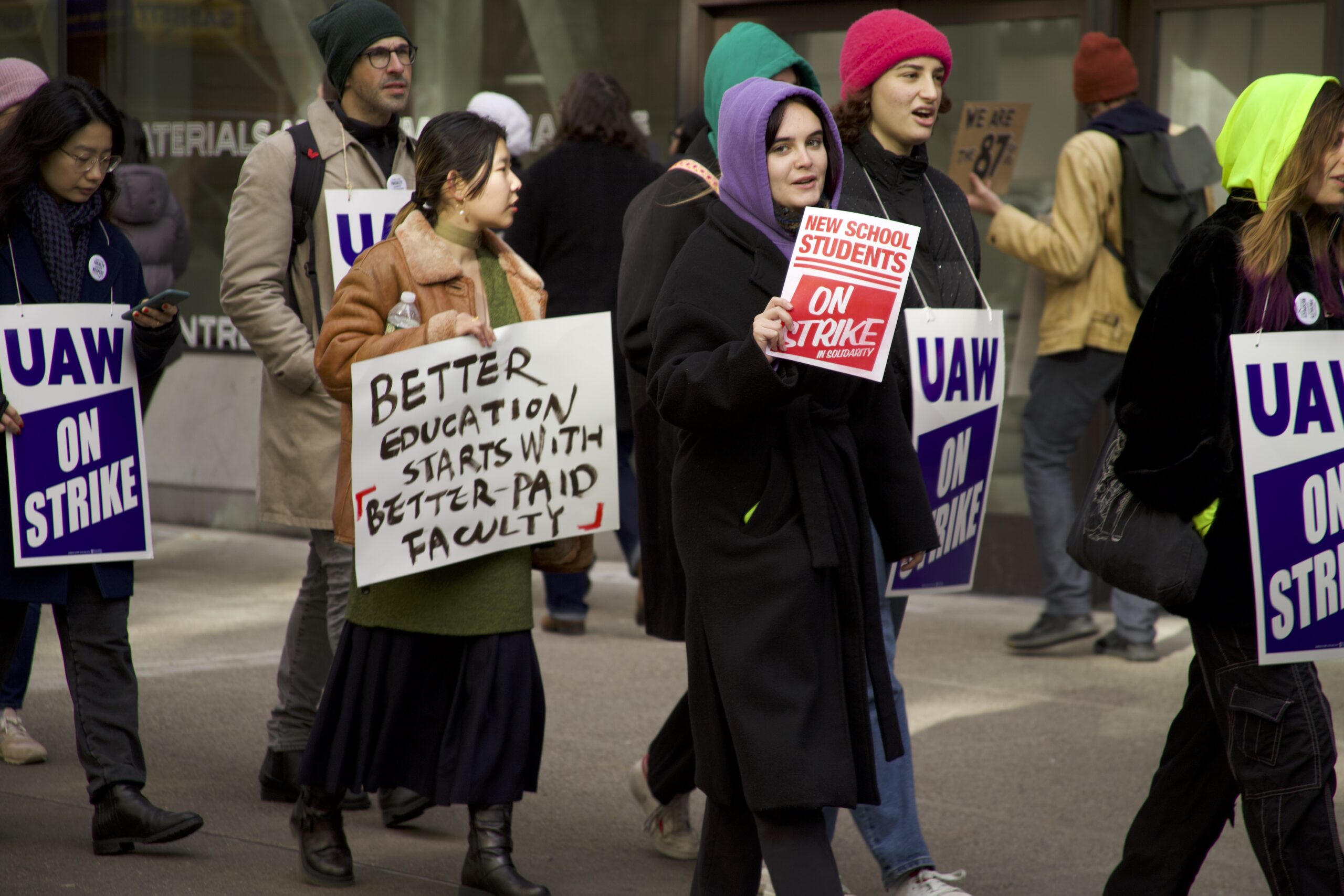
At 8:30 a.m. on Wednesday, teachers, students and supporters gathered outside The New School University Center for the first picket shift of the day after the university and the part-time faculty union’s bargaining committee failed to come to an agreement on a new contract in the months prior.
The New School part-time faculty is asking for a pay increase, expansions of health care services, job security and increased curriculum coordination support. The crowd that gathered outside the University Center brought signs, megaphones and Scabby the Rat, a giant inflatable rat that is a symbol used at strikes, to protest the lack of progress in the current contract negotiations.
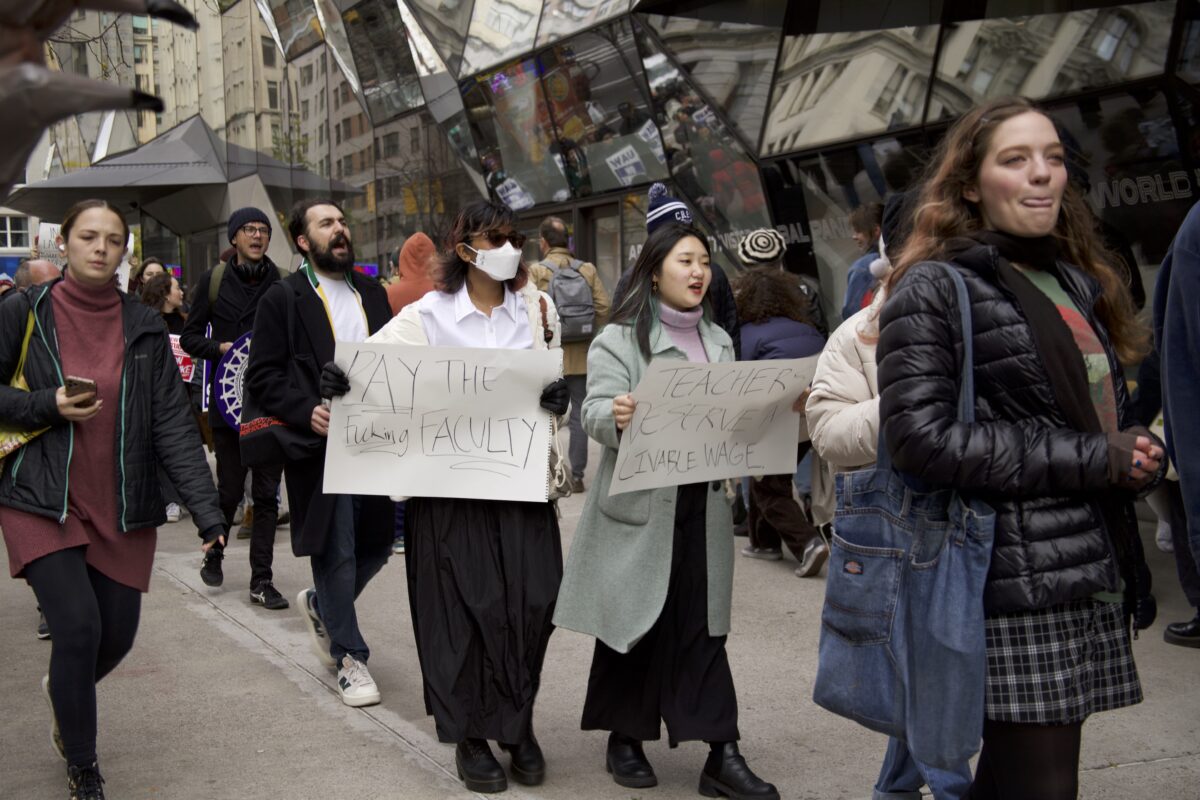
Protesters on the front line about their feelings about the strike and their reason for joining in the strike.
Erika Doering (she/her) works in the Parsons School of Design Product Design department and has been working at The New School for two decades. She spoke to the broader implications of this strike in an interview with The New School Free Press yesterday.
“We need to evolve beyond the paid for the hours that we’re in class to actually recognize what it takes to produce a class, support our students and just collaborate and do curriculum among ourselves. I really feel strongly the curriculum is core to what we do when we’ve been split off from that because they don’t wanna pay us for faculty meetings and it used to be a position and they’ve long since given up paying for that. I feel like this contract actually has a lot of opportunity to evolve what we do beyond our pay. And we’re hoping to come back to what a real community is and that’s my hope.”
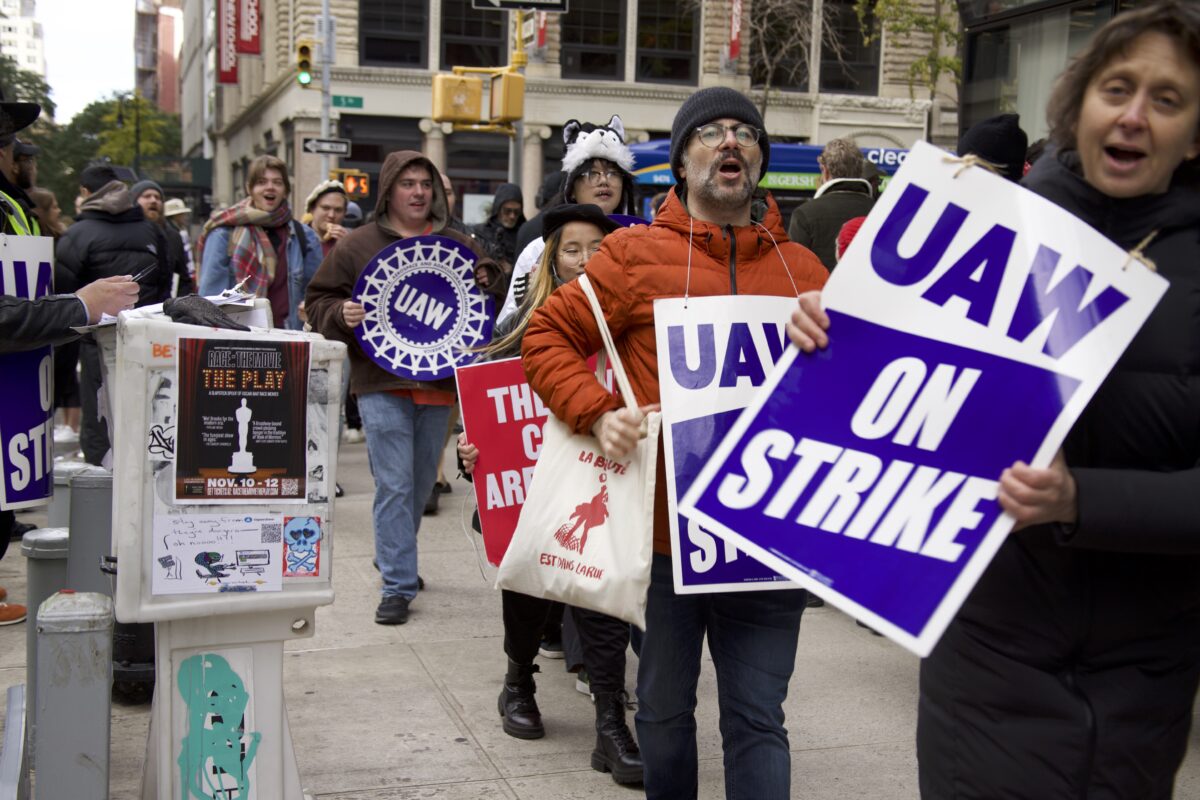
Kartik Gupta (any/all pronouns) A Second Year student at Eugene Lang College of Liberal Arts. Advocacy Chair for The New School Student Senate and the Founding President of The New School Outdoors spoke about why it is important for students to stand with their teachers, “We’re here to show the power of collective action because say one student attends the class and they maybe get attendance and others don’t; one professor teaches the class and maybe they get promotions after this, and others get retribution, but if the entire departments show solidarity, that just means The New School as an employer doesn’t have really [much] that they can do to us. I think that’s why it’s important for all 18 [students] of each class to show up, all departments including part-time faculty, graduate student academic workers to show up, teaching assistants, lab assistants, we all need to stand together at this time.”
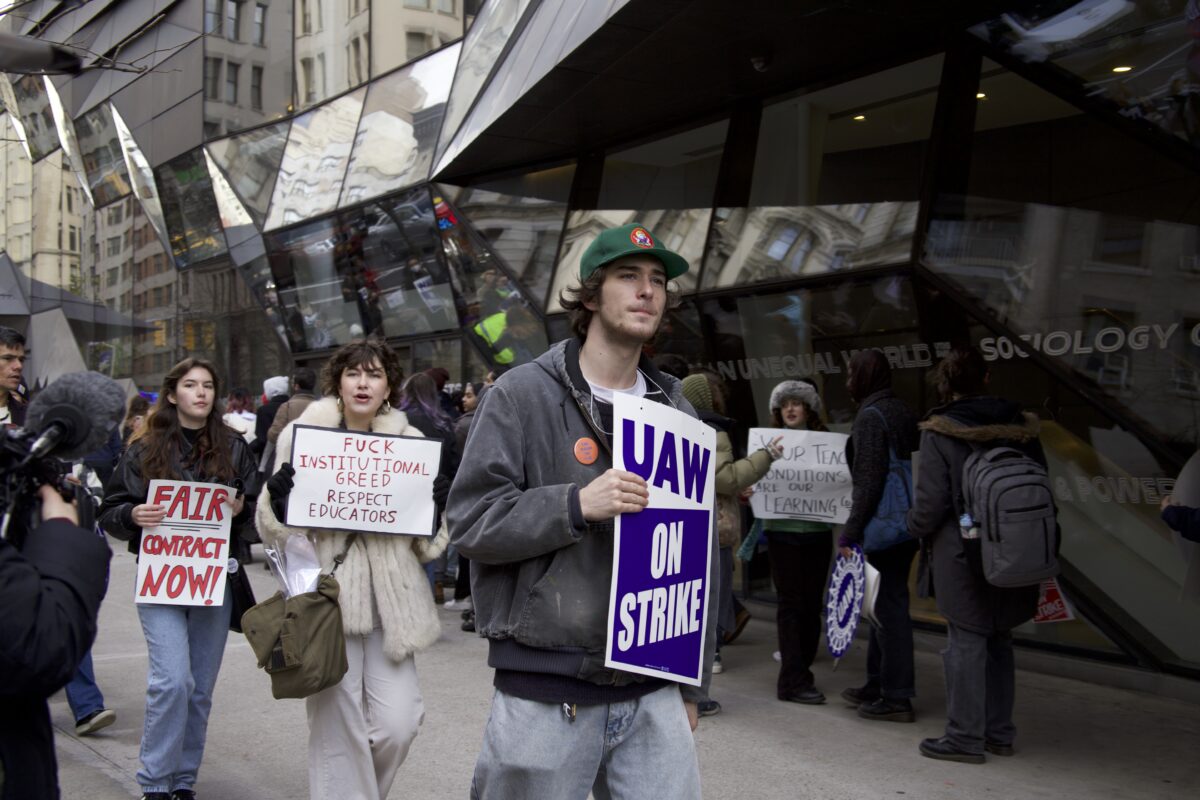
Kartik also spoke to the anxiety that some students are feeling around the cancellation of classes because of the strike, “In order to report an absence from class, a faculty member needs to take that action. It’s highly unlikely that any professor is going to report a student for being absent. If you look at history right now we have universities in Missouri, New Haven, in California who are also fighting similar movements. History is evidence that it has never backfired on students or faculty. [Strikes] have always been in favor of union and unionization. I get [the anxiety students are feeling] it is all natural and as an international student myself, who is here on F-1 Visa, I understand that there are complications with third-party scholarships and our visa status but we have to ensure as many people as we can that those statuses are not to be affected by this”.
The New School posted on their Instagram the same Wednesday that regardless of class cancellations students will maintain full-time status and their F-1 or J-1 will remain active.
Mitri Krishna (she/her) second-year student studying Strategic Design and Management major at Parsons School of Design spoke about witnessing the strike while being in the area and speaking to why she joined, “I’ve been saying this for today: `little drops make a mighty ocean’. I think if one person just stops it’s not going to make a big difference because they can just hire a new faculty member. But if everybody teams up together and works in unity to make a change and [even if] it doesn’t move forward, it’s at least a start to get somewhere better.”
Correction: A previous version of this article incorrectly stated that the strike started on Tuesday. It started on Wednesday.

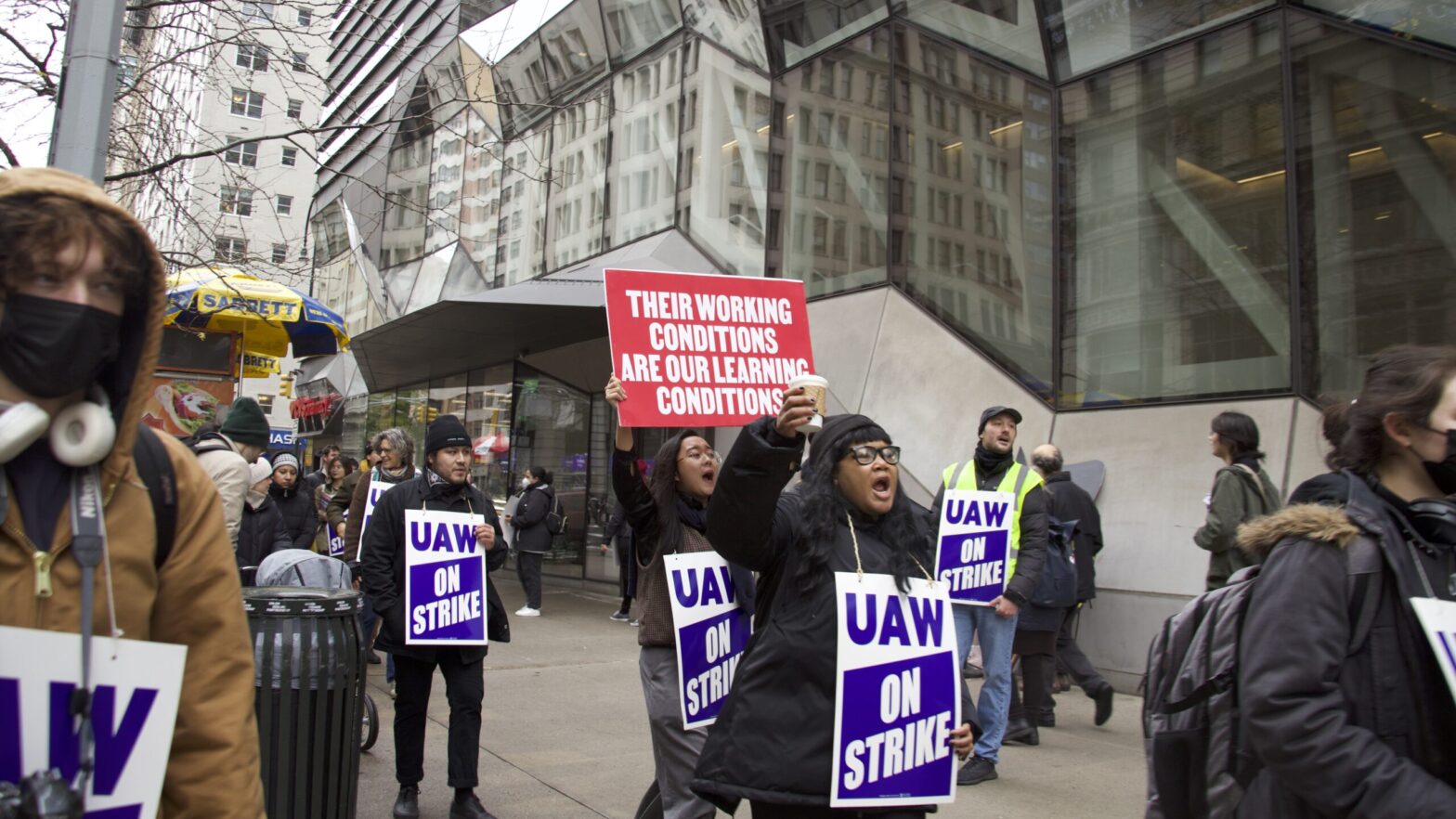
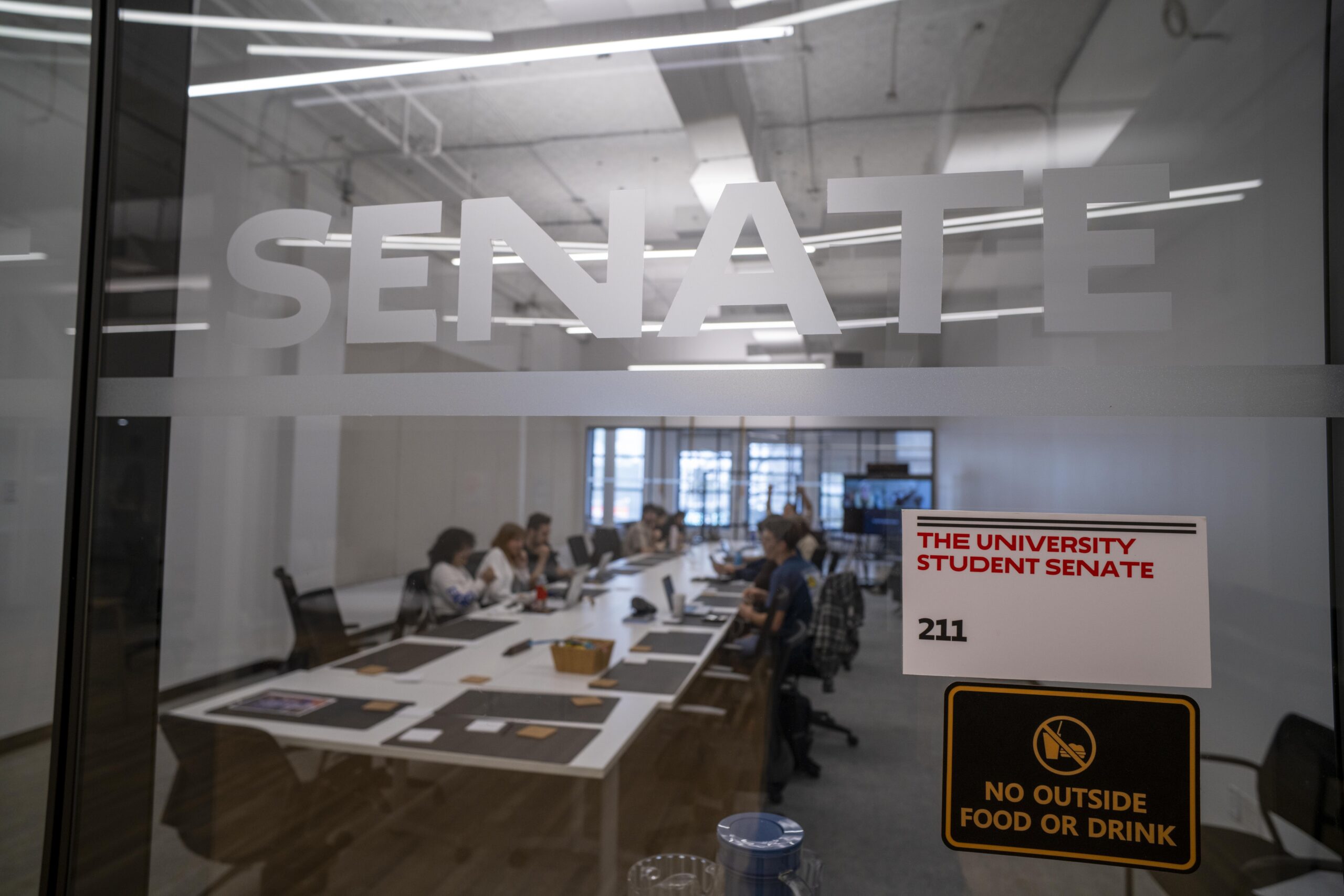





Leave a Reply